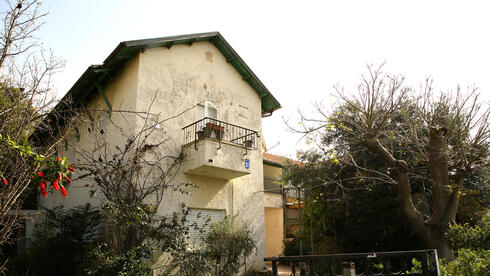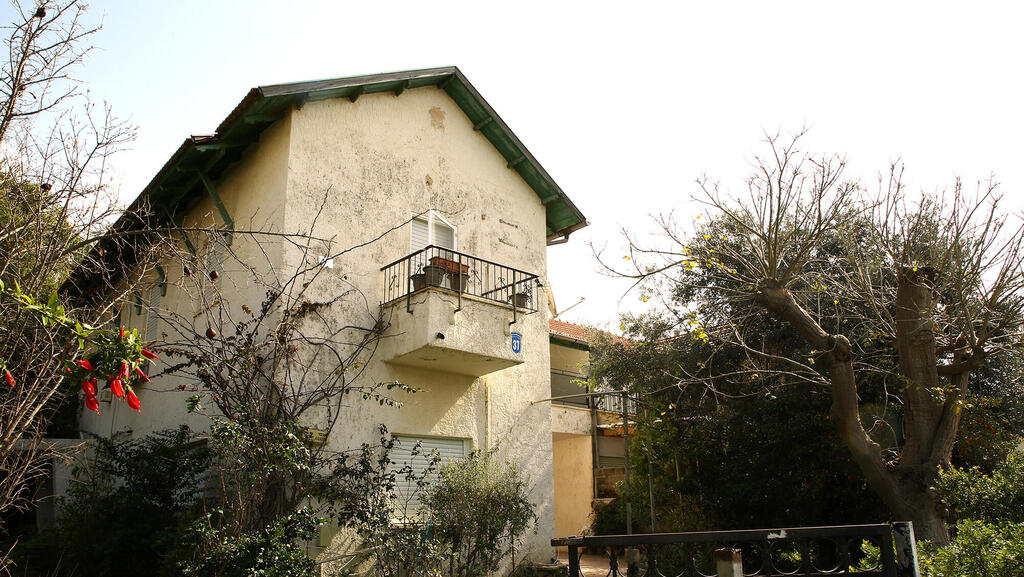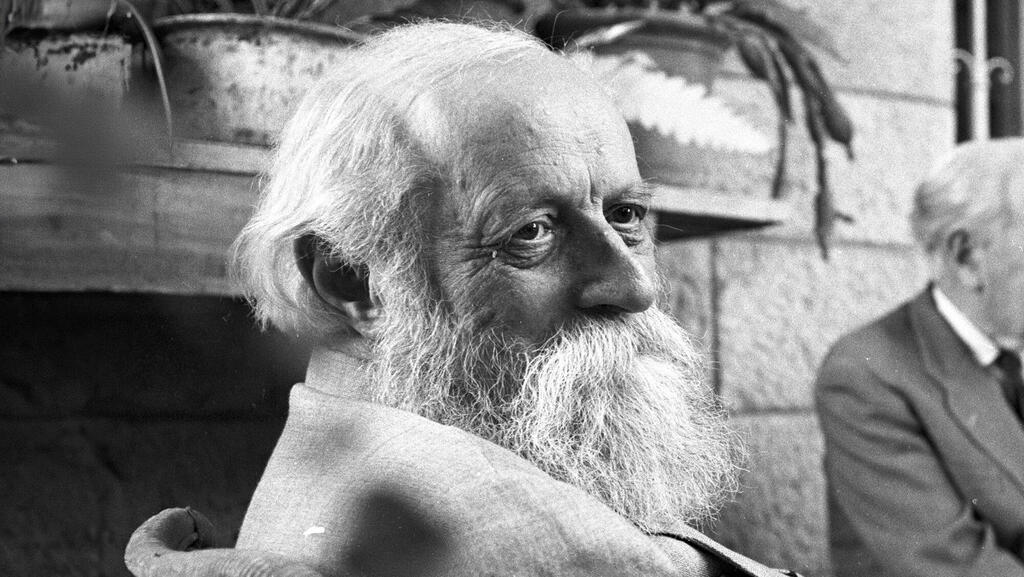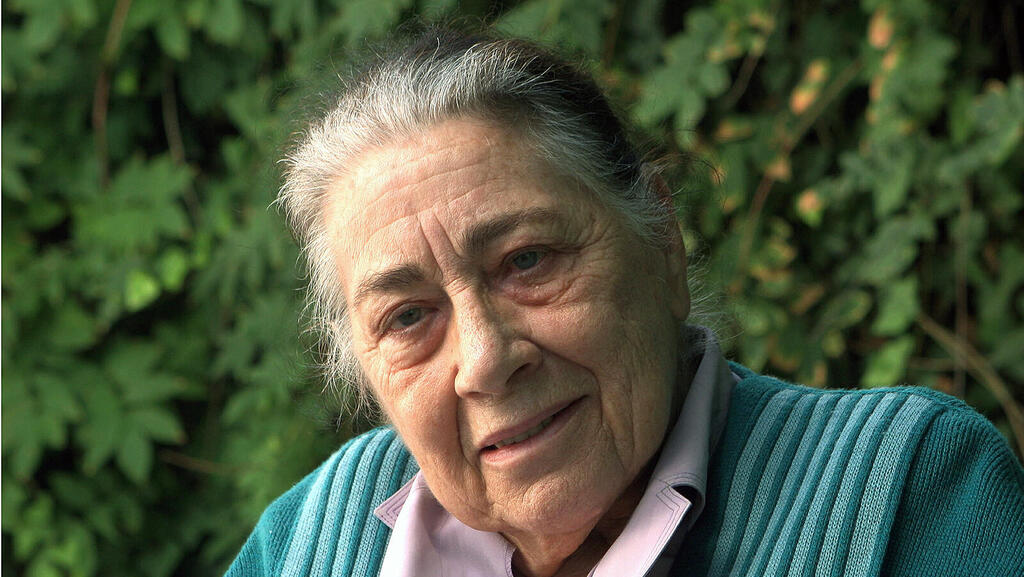
Buber family's Herzliya villa sold for fraction of its value—court to decide its fate
The Tel Aviv District Court will rule on whether the 10-million-shekel home’s sale for just 630,000 shekels was legitimate or should be annulled.
The Tel Aviv District Court will decide whether a house in Herzliya Pituach, valued at 10 million shekels (approximately $2.8M) but sold for only 630,000 shekels ($177,000) constitutes a valid sale or whether the sales agreement should be canceled.
This house was owned by Prof. Judith Buber Agassi, granddaughter of philosopher Martin Buber, and her husband, Israeli philosopher Prof. Joseph Agassi. The sales agreement stated that the house would be sold for 2 million shekels to Joseph Agassi's niece and her husband in installments of 10,000 shekels each month. However, the obligation to complete the full payment would expire upon the death of both sellers. Therefore, in practice, due to the deaths of the Agassi-Buber couple, the house was ultimately sold for 630,000 shekels. At the time of the transaction in 2017, the sellers were both over 90 years old. Judith passed away in 2018, and Joseph passed away in 2023.
This led to a legal dispute between the Agassi-Buber couple's only son, Aaron Agassi, who has special needs, the administrators of Joseph Agassi's estate, and the niece, Ruth Heyman, and her husband, Professor of Medicine Anthony Heyman, who purchased the house. In January of this year, Tel Aviv District Court Judge Dr. Kobi Vardi rejected the Heyman couple’s request to dismiss the lawsuit outright and issued a temporary injunction, at the request of Aaron Agassi and the estate administrators, prohibiting the couple from taking any action or conducting any transactions involving the house. Notably, during the proceedings, the Heyman couple stated that they did not object to the temporary order. It is important to note that the lawsuit is still ongoing and has not yet been resolved.
The judge noted in his decision that according to the terms of the sale agreement, "17 years were required for the full payment of the consideration, and this was at a time when, at the time of signing the sale agreement, both the Agassi-Buber couple were over 90 years old, and upon the death of both spouses, this would be considered, according to the sale agreement, as full consideration. In our case, in practice, the amount of consideration for the private house in Herzliya Pituach after the death of Judith and Joseph was set at only 630,000 shekels... This is an agreement ostensibly full of fundamental defects, with great doubt regarding whether Judith’s health condition allowed her to enter into the sale agreement that effectively gave her house as a gift to Ruth and Antony."
The case went to court in December 2024, following a lawsuit filed by their son Aaron Agassi and the administrators of his late father's estate, Attorney Yoela Har-Shefi and Attorney Nadav Monselise. They are represented by Attorneys Rafi Shapira and Chen Assaf of the S. Friedman, Abramson law firm. The court was asked to order the cancellation of the house's sales agreement due to serious defects that allegedly occurred during its conclusion. In February of this year, the niece and her husband filed a defense, claiming, among other things, that the agreement was concluded in accordance with the full will and choice of the Agassi-Buber couple, who were in excellent cognitive condition.
In the application for an injunction filed by the plaintiffs, it was stated that the agreement to sell the house was signed on November 11, 2017, between the Buber-Agassi couple, who were over 90 years old, and the Heyman couple. It was also claimed that at the time of signing, Judith was in a poor cognitive state and that the only lawyer involved in the transaction was the son of the buyers. Another claim is that the sales agreement included exceptional, derogatory, and oppressive provisions that harmed the Agassi couple and their only heir— their son Aaron.
The plaintiffs further claim that the sales agreement stipulated that, even before the full consideration was paid, the defendants were entitled to transfer ownership of the house to their names, which they allege was done. In addition, on December 13, 2017, less than a month after the signing of the sales agreement, Judith and Joseph made a mutual will, under which they bequeathed all of their property to the surviving spouse, and after their death, all of the estate assets were to be transferred to Aaron (with a few exceptions). It is alleged that this mutual will stated that, at the time of its signing, Judith and Joseph were the owners of the residence in Herzliya Pituach. From this, it is alleged that the Agassi-Buber couple intended to bequeath the house, which is their main property, to their son and had no intention of transferring ownership to their niece and her husband. The plaintiffs also claim that on May 30, 2019, for reasons not yet known to them, Joseph Agassi made a new will, identical to the previous one, except for an amendment that omitted reference to the residence.
However, the judge ruled that "it is possible that at the end of the day, after conducting the lawsuit and presenting evidence... it will be proven that the respondents (the Heymans) are as innocent as snow and that everything was done voluntarily and according to the wishes, instructions and directives of the late Agassi couple and according to the absolute discretion of the couple who simply wanted, as the respondents claim, to give them their main valuable asset, the house in Herzliya Pituach, as a gift, and not leave it to their only surviving son with special needs. However, at this stage, the situation does not appear to be that way and the applicants have apparently succeeded in establishing, to the extent required at this stage to receive temporary relief, their claims."
The judge also ruled that he accepts the fact, which was not actually denied by the son and the estate administrators, "that Aaron dealt and deals a lot with the matter of freezing bodies or people, so that they could be revived in the future, and that Judith and Joseph were concerned that if he were given funds without restrictions on their use, they would go down the drain and be spent on the issue of freezing the bodies. However, on the other hand, I accept the testimony of Yoela (the estate administrator)... that concern for Aaron and his medical condition and needs greatly occupied the Agassi couple... Their concern for their only living son could have found a solution in the form of a trust fund, including for the house, in such a way that the rent would be transferred in trust for Aaron's needs or that the property would be sold and the funds would be deposited in trust and given under strict conditions and while safeguarding them for Aaron's needs. "However, there was no one in the circle surrounding Judith and Joseph who was involved in drafting and signing the sales agreement between them and Ruth and Anthony, who appears to have offered them this," he stated.
The defendants, the Heymans, sought to dismiss the application. They claimed that Aaron, despite having special needs, was fully aware that the house was being sold to the Heymans because his parents had informed him of everything they did. The plaintiffs, through attorney Aviv Eilon, also claimed that Aaron deliberately chose to wait until his father Joseph’s death in 2023, when Joseph would not be able to refute the claims regarding the 2017 sales agreement, thus preventing Aaron from presenting the truth, according to which the rights to the property were legally transferred to the Heymans out of feelings of love and appreciation between the Agassi-Bubers and the Heymans. According to the defendants, the Agassi-Bubers were fully competent to enter into the transaction and acted with discretion, even asking the Heymans' son to draft the sales agreement.
The defendants' attorney, Aviv Eilon, stated: "The essence of the lawsuit is in complete contradiction to the express will of the deceased and all behind the back of the Family Court, while harming the honor of the memory of the Agassi couple. The claim regarding 'exploitation' of a cognitive state is false and does not hold water. The property was transferred to my clients lawfully, out of the free will of the Agassi couple, who deliberately sought to prevent Aaron from controlling their property, and not without reason. They were aware that after their death, Aaron would behave irresponsibly and become a target for exploitation by parties with foreign interests. To prevent this, they established a trust fund for him that would ensure his well-being until the end of his life, while removing the rest of their substantial property from his control. Now, in a blatant attempt to nullify the clear will of the deceased, legal proceedings are being abused. The decision to grant temporary relief is based on the rule - if there is doubt, there is no doubt. It’s only a matter of time until the picture becomes clearer and it’s revealed who is acting in bad faith here."

















